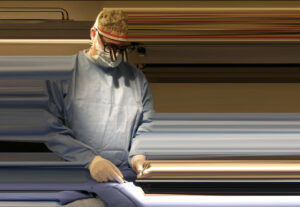How Patients Have Made Me A Better Surgeon

I am the kind of physician and surgeon who likes to constantly improve. Sure, I deeply respect those things tried-and-true that work great and that get the job done. But I also have a knack for pushing the boundaries of my skill, knowledge, and medical discipline. In my humble opinion, garnered from cherished mentors over my career, an expert is one who seeks consistency, curiosity, practice, and persistence in what they do. Certainly, these attributes will make anyone better or the best over time. Indeed, they are the engine of improvement.
But what steers that engine? For me, it’s all about feedback, the stuff we’ve heard since grade school and something that I cherish and respect to this day. I wholly agree with the words of Ken Blanchard, author of The One Minute Manager: “Feedback is the breakfast of champions.”
Feedback Rocks
Let me rant for a moment about how patient feedback has honed my vasectomy procedures into a fine art. About 3,000 cases ago, when I was just finishing my surgical residency training, the no scalpel vasectomy came to America. As a curious guy, I quickly saw its potential, adopted it, and never looked back. About 2,000 cases ago, I began using a proprietary algorithmic postoperative care follow-up system that allows patients to “check in” with me daily after their procedures. In the classic, biblical “ask and you shall receive” manner, I learned more about how men heal after I operated on them than anyone would ever want to know. But, instead of being overwhelmed by the feedback, I saw it as an opportunity to improve and grow as a surgeon.
Some of the material changes I made during the vasectomy procedure that resulted directly from patient feedback include:
- Putting a single stitch in the puncture wound so it heals cleaner and faster.
- Performing the vasectomy as high as possible in the scrotum to avoid congestive “blue balls” pain afterwards.
- Using laughing gas to make the case go smoother and faster.
- Allowing patients to return to normal activities at their own individual paces and not having them abstain from sex or exercise for prescribed periods of time.
Men Are People Too
Ah, but patient feedback has taught me so much more about that magnificent being that is the human male. As a surgeon putting instruments into men’s bodies, I now have a deeper understanding of what men are really all about:
- Men know their own bodies better than I know them. I am just a short-term passenger on the train ride that is their lives.
- I see many different responses from men to the exact same surgical procedure. All of these responses are valid, deserve respect, and stem from how they’ve lived their lives.
- As a corollary, the same procedure is a very unique experience to each man who receives it, and this merits acknowledgement and acceptance.
- If you ask them the right way, at the right time and in the right place, men will tell you exactly, and with great detail, how they are faring after surgical procedures.
So, it seems feedback has made me not only a better surgeon doing better procedures, but also a wiser being about the animal that is man. In the words of the poet Maya Angelou: “When someone shows you who they are, believe them the first time.”









